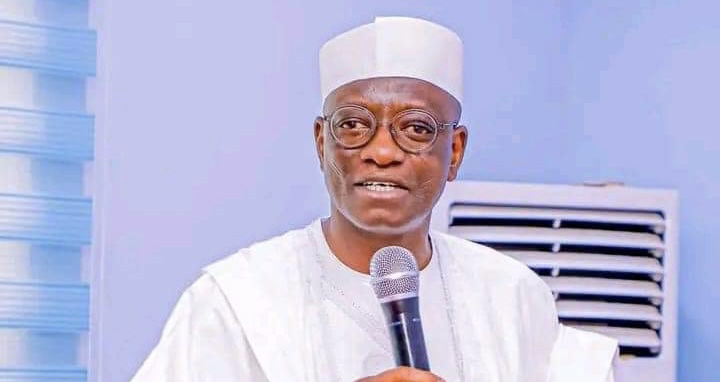Senator Ahmed Wadada’s resignation from the Social Democratic Party (SDP) marks a significant political development in Nasarawa State, potentially reshaping the political landscape and raising questions about his future political alignments. Wadada, representing Nasarawa West senatorial district, formally communicated his decision to the SDP chairman in Tudun Ward, Keffi Local Government Area, citing the party’s persistent internal crisis as the primary reason for his departure. His resignation letter, dated and submitted on a Thursday, explicitly highlighted the deep divisions and ongoing litigations within the SDP that had rendered the party’s internal workings increasingly untenable. While acknowledging the opportunities and relationships he had cultivated during his time with the SDP, Wadada emphasized the need to explore new political avenues, suggesting a desire for a more stable and unified political platform.
The timing of Wadada’s resignation is particularly noteworthy, coming on the heels of his public pronouncements in support of President Bola Tinubu’s administration. Following a visit to the State House, Wadada dismissed the notion that the African Democratic Congress (ADC) could produce a leader capable of surpassing Tinubu’s achievements. This statement, seemingly aligning him with the ruling All Progressives Congress (APC), fueled speculation about his potential return to the party he had previously belonged to. Wadada’s political trajectory has been marked by affiliations with various parties, including the Peoples Democratic Party (PDP) where he served as a national officer, and later the APC before joining the SDP. This history of party switching underscores his pragmatic approach to politics and his willingness to realign based on evolving political dynamics.
Wadada’s explanation for leaving the SDP centers on the party’s internal strife rather than personal grievances. He characterized his decision as a response to the “dynamism of life,” suggesting a calculated move based on his assessment of the political landscape and the potential for greater influence and effectiveness within a different party structure. While not explicitly confirming an immediate return to the APC, his recent comments praising President Tinubu and downplaying the ADC’s prospects indicate a clear leaning toward the ruling party. This shift in allegiance could have significant implications for the political balance in Nasarawa State, particularly in the context of future elections and political appointments.
The implications of Wadada’s resignation extend beyond his individual political career. His departure from the SDP potentially weakens the party’s presence in Nasarawa West and could influence other members considering similar moves. The SDP, already grappling with internal divisions, faces the challenge of retaining its support base and rebuilding its image in the wake of this high-profile exit. Furthermore, Wadada’s potential return to the APC could bolster the ruling party’s position in the state, giving them an experienced politician with established networks and influence within the Nasarawa West constituency.
Wadada’s political maneuvering reflects broader trends in Nigerian politics, where party affiliations are often fluid and politicians frequently shift alliances based on perceived opportunities and political expediency. Such realignments can have significant consequences for the stability and effectiveness of political parties, impacting their ability to articulate coherent policy platforms and maintain a consistent ideological stance. The focus often shifts to individual personalities and political calculations rather than party loyalty or ideological commitment.
In conclusion, Senator Ahmed Wadada’s resignation from the SDP is a significant political event with implications for the political landscape of Nasarawa State. Driven by the SDP’s internal crisis and potentially influenced by the evolving political dynamics at the national level, Wadada’s decision underscores the fluidity of party affiliations in Nigerian politics. While his future political moves remain to be formally announced, his recent pronouncements suggest a likely return to the APC, potentially strengthening the ruling party’s position in the state and further reshaping the political balance in the lead-up to future elections.














